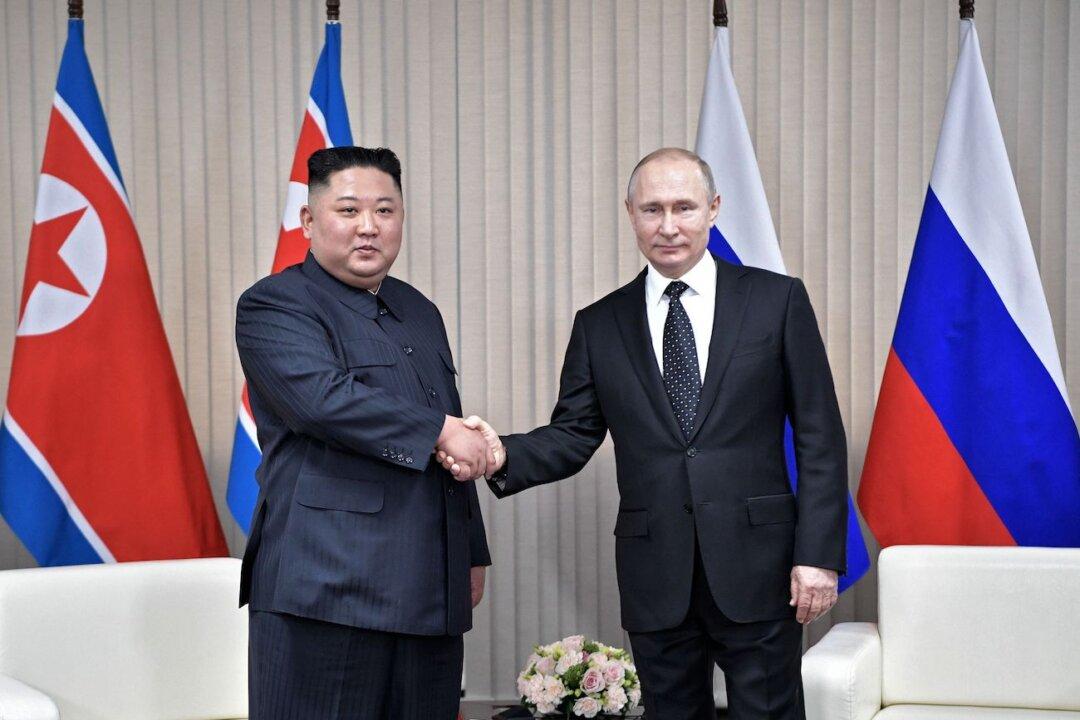Russian President Vladimir Putin on Aug. 15 reportedly wrote to North Korean leader Kim Jong Un urging stronger bilateral relations between their countries, according to Pyongyang’s official state media.
In a letter to Kim honoring the Korean Peninsula’s freedom from Japanese colonial rule, Putin reportedly said that Russia and North Korea should “expand the comprehensive and constructive bilateral relations with common efforts.”





